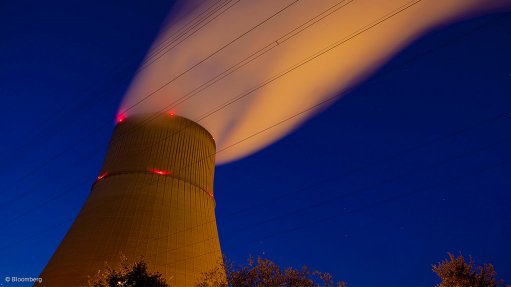
Photo by: Bloomberg
An introductory nontechnical course for nuclear component manufacturing would enable South African companies to produce high-quality components for export, said course coordinating body and consultancy Nuclear Africa CEO Dr Kelvin Kemm.
The first course, to be held on July 10 and 11, would explain the certification requirements and the potential export markets to all levels of employees, including financial officers and nontechnical officers, to enable them to gauge the potential benefits for their companies.
It would also focus on international standards organisation ASME’s Code 3, which governs the manufacturing specifications and record-keeping associated with components used in nuclear infrastructure.
“There is significant potential for even small manufacturing companies to produce high-quality components that can be used in nuclear power stations and to also export their accredited components, as there is significant demand for such high-quality components,” noted Kemm.
However, components that could be used in nuclear installations had to be of the highest quality, owing to the strict international regulations that govern the operation of nuclear power plants. Small manufacturers that manufacture certain products to very exact standards could, thus, participate and manufacture products for immediate export, he added.
About 75% of all the systems in a nuclear power plant are nonnuclear and are similar to those used in conventional power plants.
Some South African companies have supplied components for large-scale power infrastructure projects and could, therefore, produce components for use in nuclear and nonnuclear power stations.
“We do not want to gear up companies to only make components for local nuclear power stations that will only be built in the next two decades. Companies holding ASME Code 3 accreditation can immediately export their high-quality products to other markets internationally. There are currently 76 nuclear power stations being built across the world to which they can supply components,” Kemm emphasised.
The course would be presented in conjunction with engineering consultancy EON Consulting, which already has the necessary certification to present aspects of ASME training. The consultancy was also capable of conducting inspections on behalf of ASME to certify companies as fulfilling ASME Code 3 requirements.
“We have also worked closely with ASME, in New York, throughout this initiative. It supports this project and has mooted opening a local ASME office.”
Nuclear Africa and EON Consultancy would also present two other, more technical, courses. The first nonconsecutive ten-day course focuses on the electrical and mechanical component specifications and manufacturing requirements.
The final ten-month course would cover detailed implementation issues, including the record-keeping practices required by ASME Code 3.